Beauty & Progress: Disaster Recovery and Savings Groups
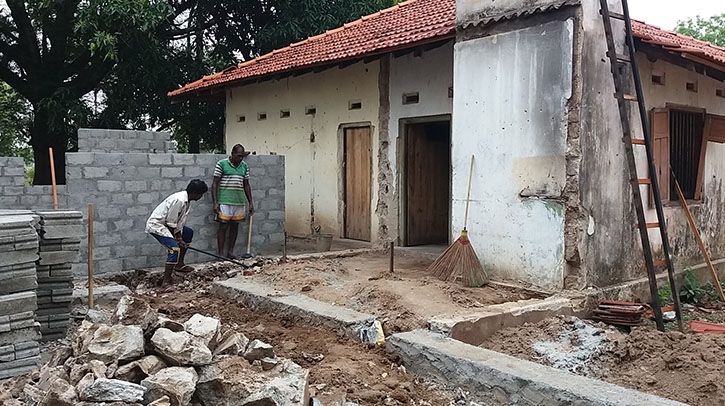
This blog comes at a time when Sri Lanka is responding to Cyclone Mora. Chuck Hamilton, a Network Coordinator for Episcopal Relief & Development in the Diocese of Olympia, recently visited Sri Lanka. In his reflection below, we learn how the community is equipped to live a resilient life despite the ongoing challenges of responding to chronic disasters.
Have you ever felt overwhelmed to the point of inaction, thinking: “I can’t make a difference anyway, so why even try?” If you have, that’s understandable. There are over one billion people worldwide who live on the equivalent of less than $1.25 per day. Another two billion folks fall under the $2.50/day level. There are currently a record number 65 million refugees in the world, many seeking safety from their war-torn homelands. Over the past 20 years, an average of 65,000 people die each year from natural disasters. Tsunamis are the deadliest, killing 79 people out of every 1000 who are affected.
These are sobering statistics, to be sure. And it is certainly tempting to just throw up our hands in frustration and walk away. “What can I possibly do to help this situation?” we say to ourselves.
Fortunately for us Episcopalians, we have an organization within our ranks whose sole purpose is to address these issues head-on; to deal with challenging problems in remote locations, creating sustainable solutions that truly transform lives. This organization is Episcopal Relief & Development and I am honored to be the organization’s network coordinator for the Diocese of Olympia.
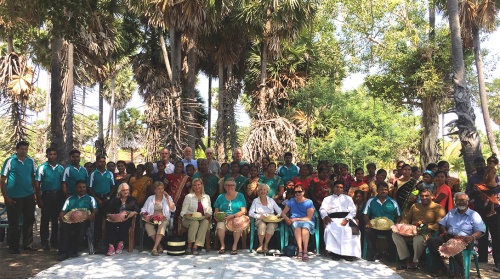
On several occasions in recent years, my wife Kathy and I have had the opportunity to participate in several pilgrimages to parts of the world where Episcopal Relief & Development has partnered with local dioceses, churches and ecumenical groups to deal with issues such as disaster relief and recovery, economic development, refugee assistance, water and sanitation challenges, and health concerns.
In January of this year, we traveled to Sri Lanka, the large island to the southeast of India, formerly known as Ceylon. Experiencing the inviting sand beaches and lovely resorts along the southern coast of the island, we were tempted to think this natural beauty and calm has always existed here. But on December 26, 2004, the country experienced one of the worst natural disasters in its history. More than 36,000 Sri Lankans died from the devastating tsunami that struck the island that day, and hundreds of thousands more were directly affected.
Driving along the shoreline during our visit, we could still see the shells of homes and businesses that were never rebuilt and the empty lots where nature’s devastation was even more complete. We could only imagine the terror of seeing a 30-foot wall of water coming across these coastal lowlands.
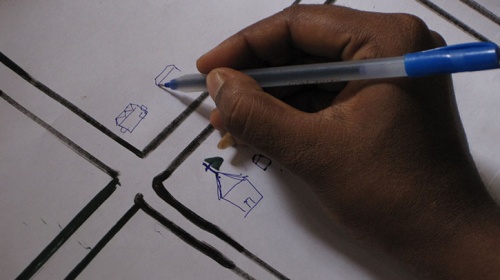
In the immediate aftermath of the tsunami, Episcopal Relief & Development partnered with the Anglican Diocese of Colombo to help meet urgent needs, and more importantly, we have continued our presence there by helping to create a robust, diocesan-wide training program for disaster preparedness and response. This successful program has been expanded nationwide in conjunction with the National Christian Council of Sri Lanka, an ecumenical group representing nine Protestant denominations. Instead of being overwhelmed into inaction, Episcopal Relief & Development has helped Sri Lanka be better prepared for future disasters.
In meeting and speaking with various native Sri Lankans, it would have been easy to believe that the population is basically content and upbeat – lots of smiles, gracious hospitality and a wonderfully subtle sense of humor. In reality, a bloody civil war lasting nearly three decades ended only seven years ago and the anger, loss, resentment, emotional devastation, and social disruption are all painfully present for those who lived through the ordeal.
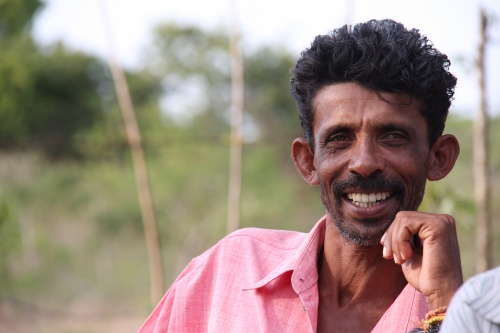
It is tempting to ignore the internal violent struggles of a foreign land, to not seek understanding or offer help, to ignore the innocent lives that are being diminished or destroyed. Not so with Episcopal Relief & Development and the Diocese of Colombo’s Social Action unit. They are working together with the faith leaders from the major religions of Sri Lanka – Buddhism, Hinduism, Christianity and Islam – to resolve issues around ethnic justice, enable access to mediation and human rights services, and provide trauma healing. Community volunteers are being trained as Conflict Mediators and Rights Vindicators. Trauma workshops are being organized. There is so much peace and reconciliation work to be done there, and these programs are a helpful start.
On the western side of Sri Lanka, seemingly at the end of the road, is the village of Mannar, where Kathy and I and our fellow pilgrims were warmly greeted by a colorfully dressed group of women who all belong to micro-savings groups. After we were treated to fresh-from-the-husk coconut milk and a welcoming dance by the cutest 5-year-olds on the planet, one of the groups actually held their monthly meeting right there under the palm trees so we could better understand their program.
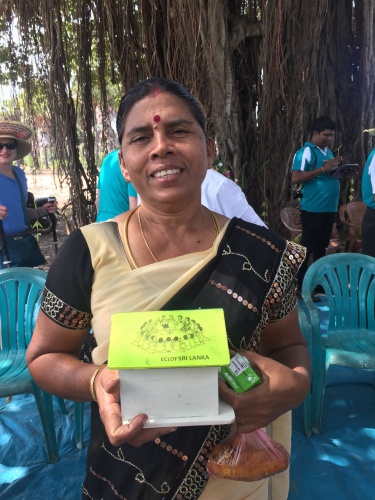
Each of the twelve members contributes 100 rupees/month (about 65 cents) into the group treasury, kept in a cash box by one person with another person keeping the key. At each monthly meeting, any member can request a short-term loan at below-market interest for anything from school supplies for their children to the expansion of a basket-making business to buying baby chicks to raise. The loan repayment and interest goes back into the treasury for others to borrow from. The total sum, both interest and principal is distributed annually in equal portions back to the group, at which time the members can re-up for another year of participation in the savings cooperative.
The groups receive training from the Ecumenical Church Loan Fund (known as ECLOF) and Episcopal Relief & Development. If you think that small dollar amounts have no meaning, the smiles on the faces of these strong and resourceful women testify to the empowerment, pride and community engagement that they gain from being able to help each other.
If any of you have contributed to Episcopal Relief & Development, you have supported the types of life transforming programs that I just described.
May the Lord be our source of strength
in resisting the urge to hide from seemingly overwhelming challenges
and guide us instead to understanding the opportunities before us.
May our enlightenment lead us to action, healing those in our hurting world.
Amen.

Chuck Hamilton is the Network Coordinator for Episcopal Relief & Development from the Episcopal Diocese of Olympia.
Images: Top, Children playing on tires in flooded area; Middle 1, Author Chuck Hamiton with other pilgrims in Sri Lanka 2017; Middle 2, Rebuilding a home damaged in a recent flood; Middle 3, A farmer smiles during a conversation; Middle 4, Member of a micro-savings group.


